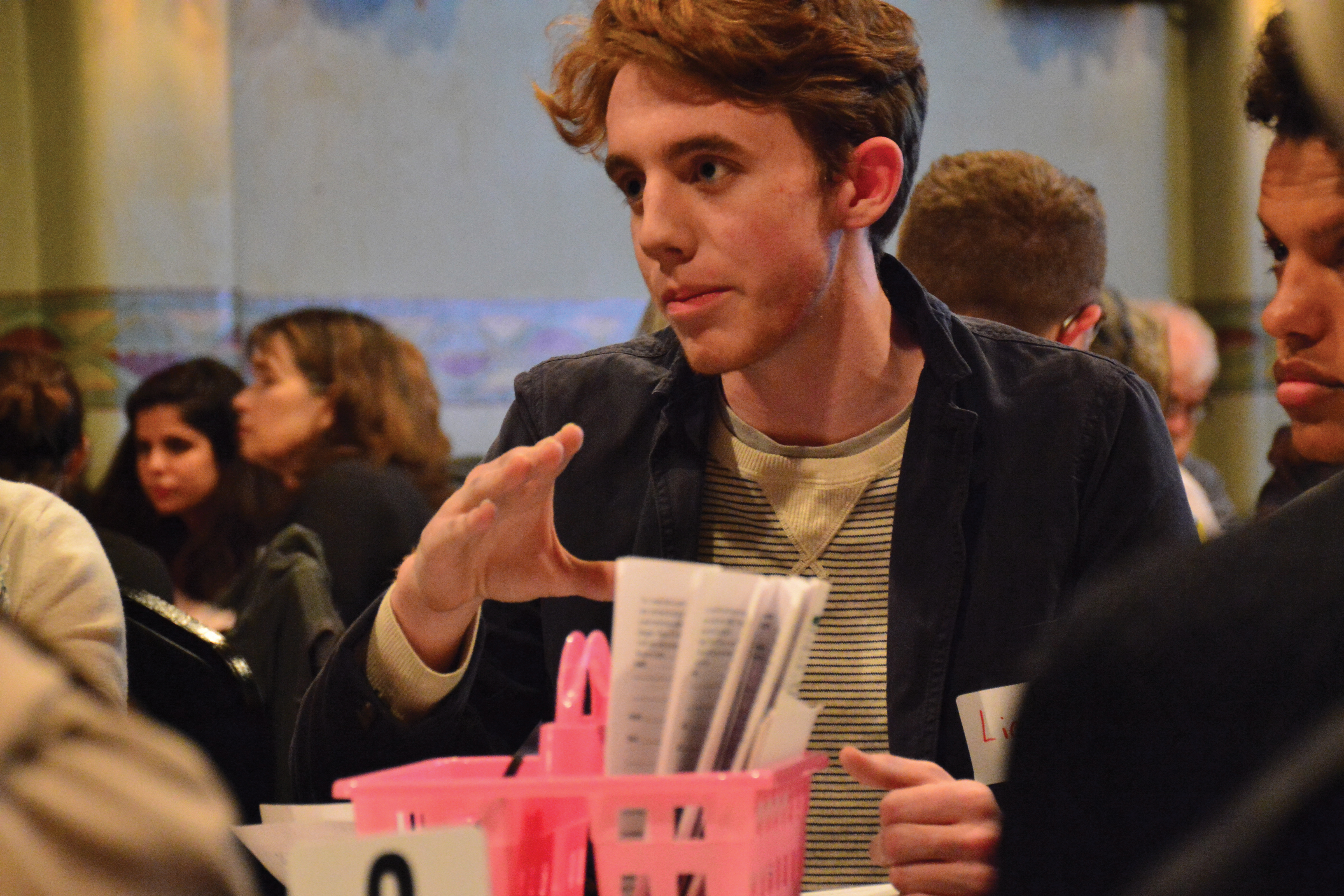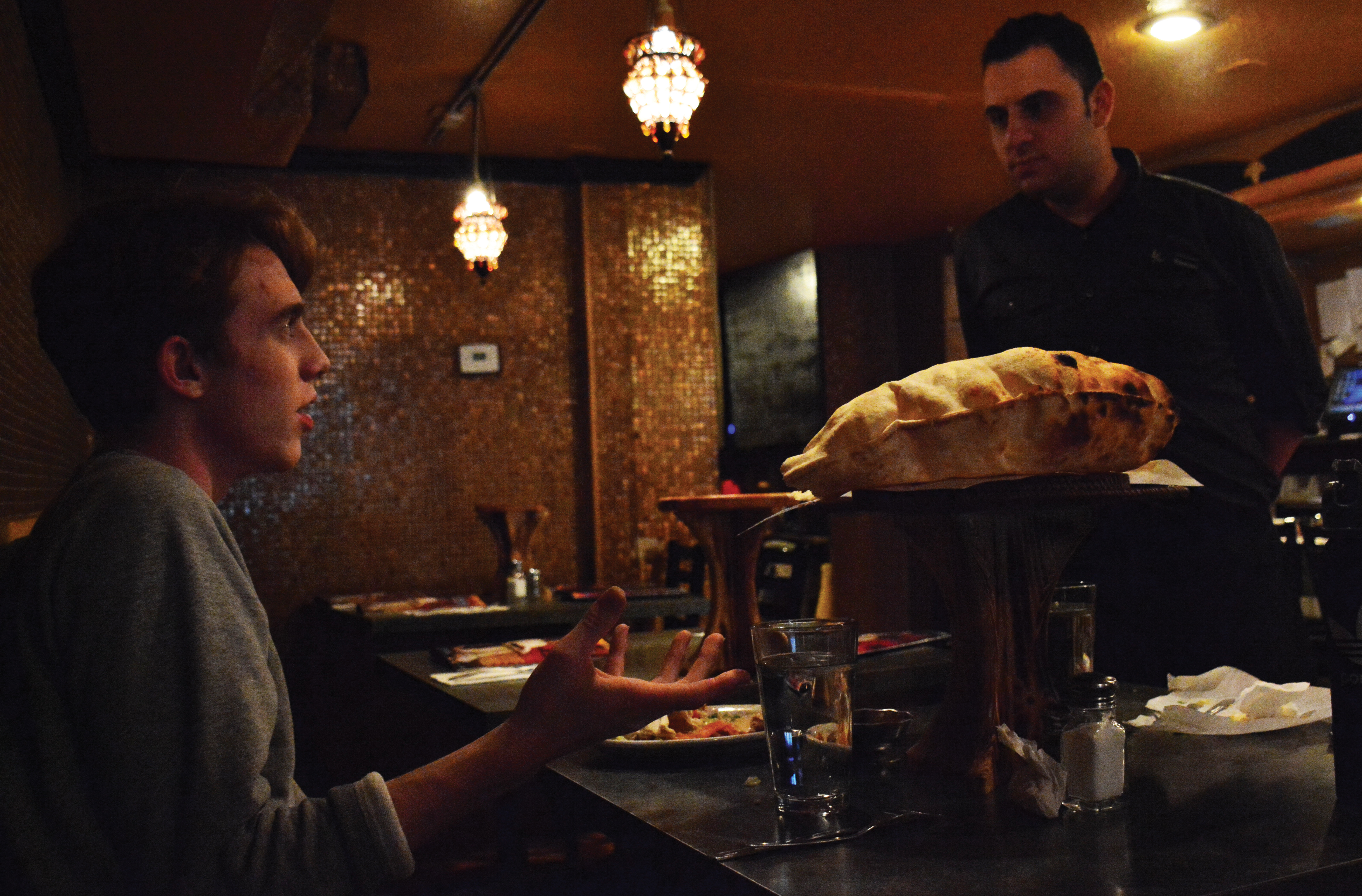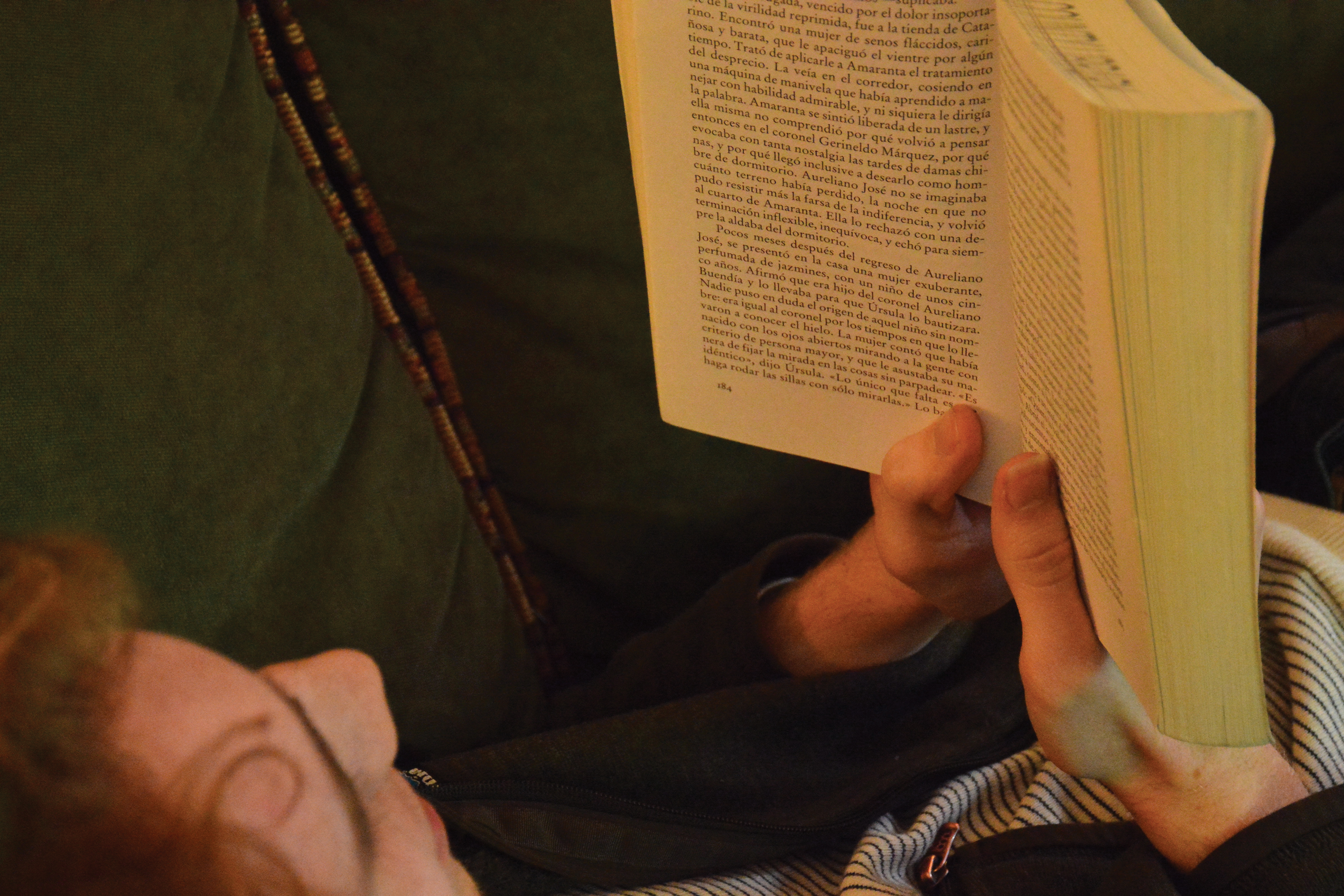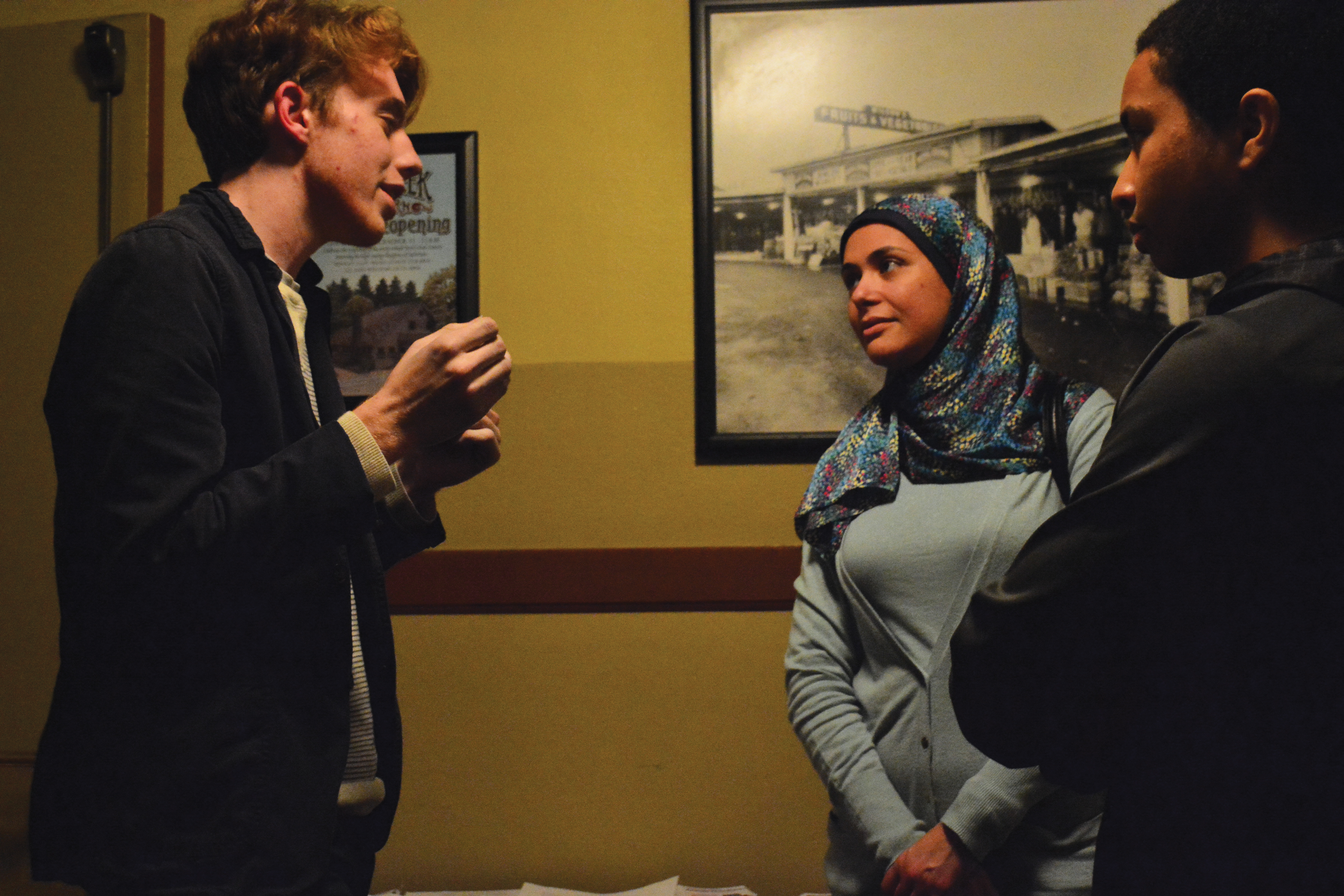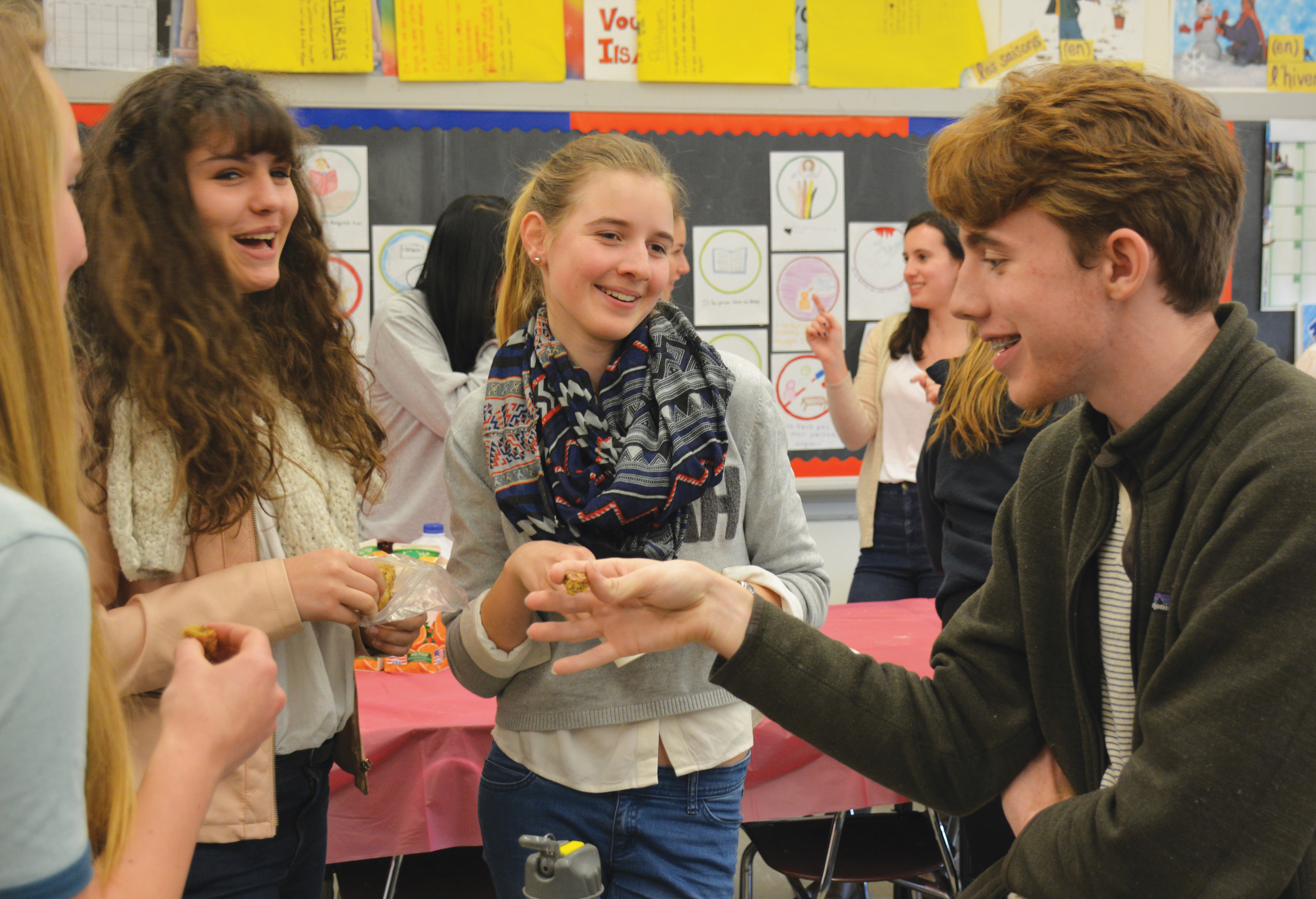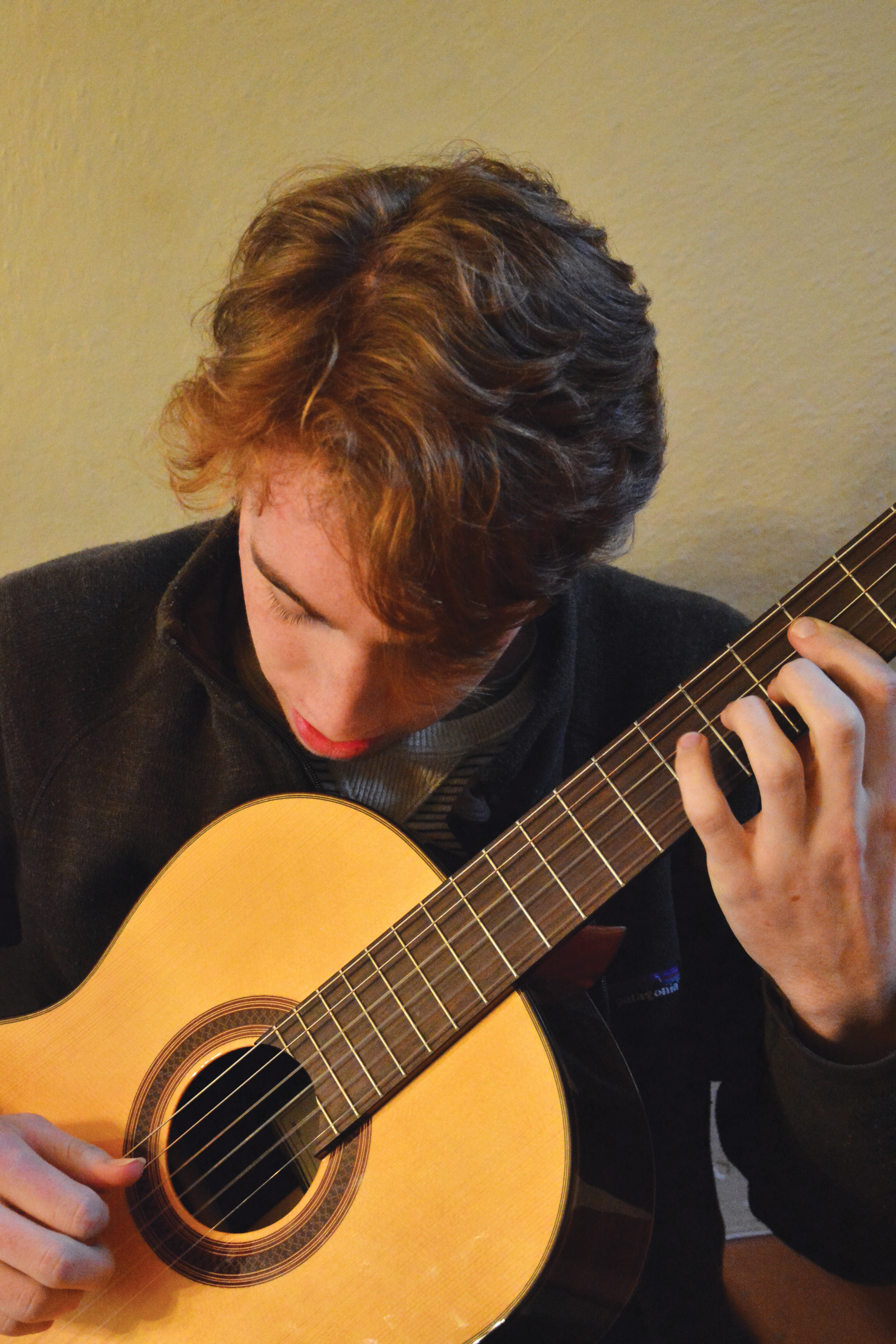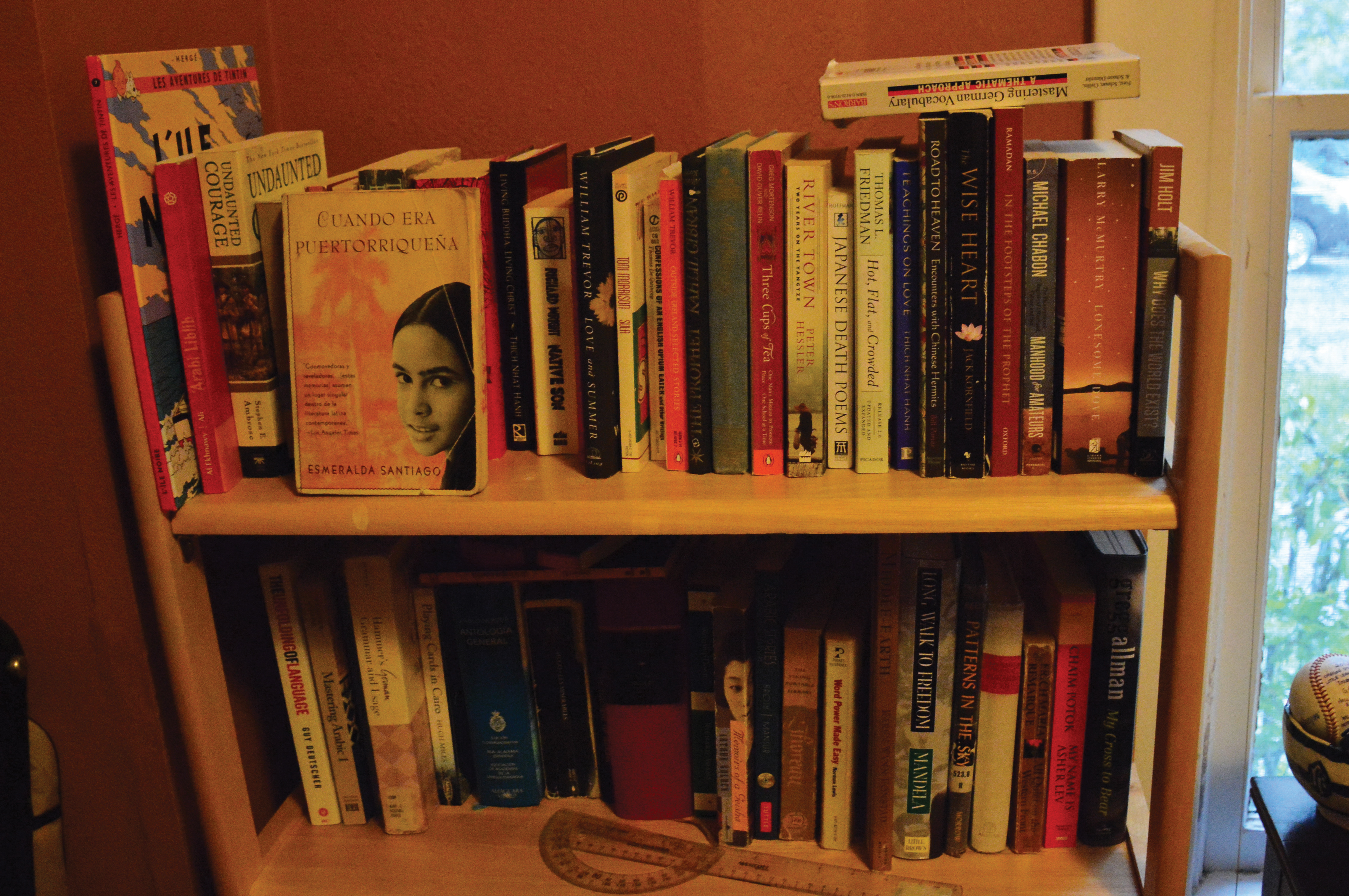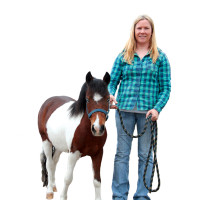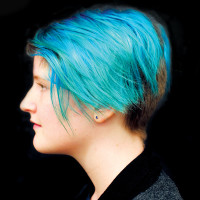Shadowed by towering shelves, sophomore Liam Purkey browses the foreign language section of Powell’s Books.
While flipping through a book on French philosophy, he hears two men conversing in Spanish. They’re talking about Spanish literature and he joins in.
“We discussed the book 100 Years of Solitude in Spanish, and we talked about how important it is to maintain your culture in a foreign place,” Purkey recalls. “It was really a cool experience…to realize that there is so much to learn from people like this.”
This curiosity for language and communication hasn’t always been a major part of Purkey’s life. Though he grew up an avid reader (never without a book in hand), Purkey also dove headfirst into playing the guitar and sports. But two years ago, his main focus shifted.
Largely self taught, Purkey is almost fluent in Spanish and French, proficient in Arabic and beginning to grasp German. Driven by the desire to connect with people all over the world, Purkey makes an effort to go beyond the technical parts of languages.
“It was kind of like this is a big puzzle at first – a big Rubik’s cube,” he says. “You have to just twist it and turn it until all the colors match up, and after a while you get into it – and you don’t know why you’re into it – but it’s like, ‘I want to do more.’”
At first, learning each new language was more about understanding the basics – roughing it through verb conjugations and sentences structures. Now, Purkey says he finds joy in the intricacies that aren’t typically taught in standard language classes.
He believes mastering these nuances will help him slide into conversation more easily. “Colloquialisms help you see more of what’s going on in a culture where grammar doesn’t,” says Purkey. “Using slang makes people’s eyes light up and it makes it more enjoyable when they realize that you’re dedicated to speaking like they do.”
Much of Purkey’s time is spent stationed on his couch, reading books or the news in Spanish and French. His notebook rests on the floor, ready to record any new vocabulary.
His family is used to it by now. “He walks around with a soccer ball and talks to himself a lot,” says his younger brother, Keenan.
Whenever they go out to eat, Purkey is always telling his family the right way to pronounce menu items.
“I’ll say goodnight to him and he’ll just be in his room babbling in Arabic,” says Purkey’s father, Andrew.
At 3, Purkey attended Heart in Hand Waldorf School for pre-school in Northeast Portland. Because of the school’s emphasis on imagination, creative play and hands-on activities with wooden dolls and scarves, Purkey’s mother, Julie, says reading was largely discouraged. To compensate at home, she spent afternoons with him, reading story after story. From then on, he was hooked.
“He would get in the car and say, ‘Mom, what does tree start with?’” she recalls. “So every afternoon, he wanted to know about sounds and whatever letters they were working on.”
By the end of kindergarten he was reading at a third-grade level. In second grade, he read the Harry Potter series. “He probably read the Lord of the Rings books on repeat for a few years because he loved them so much,” says his father.
But as Purkey grew progressively more involved in music, his passion for reading declined.
When he took up the guitar in fifth grade, Purkey says he would come home from school, turn his amp up to full volume and rip out solos from Led Zeppelin’s “Stairway to Heaven.”
“I don’t know how my mom didn’t kick me out of the house,” he says.
He looks up to musicians because they dedicate their lives to their art. “Just finding something you love so much and doing it because you love it,” he says, is the kind of philosophy he applies to his own passions. Language soon became one of those.
After being exposed to German through a FIFA Soccer video game, Purkey quickly took it upon himself to study the culture more in depth.
At the time, Germany had one of the best soccer teams in the world and Purkey decided to follow them closely. He used the German language books he got for Christmas and attempted to teach himself for a little under four months. “It just didn’t quite click,” says Purkey, who wasn’t moved to pursue the particular language in a deeper sense until sophomore year.
Purkey’s experience in his first year of Spanish reinvigorated his language efforts. “I remember just sitting in the back of the classroom and we had those really crappy textbooks,” he says. “I would just flip through it, and just read it.” He hadn’t yet realized his intentions of becoming fluent.
One day, Purkey came home from school determined to figure out the meaning of the Spanish pronoun “lo.” When he found spanishdict.com and other online resources, he was blown away by the extensive information and activities they offered.
“If I don’t know a word, it hurts me. I have to look it up.” – Liam Purkey
By the time parent-teacher conferences rolled around that fall, Andrew and Julie Purkey had no idea their son was advancing in Spanish outside of class. They hadn’t seen any sign of him putting in extra time for schoolwork, and yet Purkey’s eighth-grade Spanish teacher informed them of his progress.
From that point on, the parents were on board with supporting their son’s linguistic interests. They bought him books and Purkey’s mother arranged for him to begin another class at Beaumont Middle School where he interacted with students from the English as a Second Language program.
In late June 2013, Purkey took his STAMP test at the Portland Public Schools offices in North Portland that would determine the level of Spanish he would be placed in when entering Grant.
On his first day in John Carolan’s Spanish 7-8 class, Purkey hadn’t regularly spoken Spanish since the previous school year. “I was kind of thinking like I’d beat the system, I hacked it,” he admits. “But I was very wrong in that.”
Once Purkey realized that his Spanish speaking skills were underutilized, he only pushed further and found a role model in Carolan. “I was inspired by his nonchalance with language,” Purkey says. “He’s always learning and always interested in improving.”
Carolan quickly noticed a difference in Purkey’s work ethic compared to the majority of his other students. Says Carolan: “He has gone from using ordinary phrases to using idioms and expressions that are difficult to master.”
By Christmas 2013, Purkey decided to take on French. He had been previously interested in the language and lifestyle. “He could easily put four or five hours a day into learning a language,” says Julie Purkey. “He’s said to me, ‘Mom, there’s just not enough time in the day.’”
In fall 2014, Purkey began his first year of French in Grant’s fourth-year program. French teacher Anne-Marie Reid says Purkey’s self-teaching is impressive. “He really strives to pick up idiomatic phrases and colloquialisms,” says Reid, “which is not easy to teach in a classroom setting. He’s clearly finding those things elsewhere.”
Right before the start of sophomore year, Purkey’s friend Andy Blischke made a bet, daring him to learn Arabic in six months. Intrigued by the difficulty of the language, Purkey thought: “It’s just so foreign. You don’t even have to hear it, just look at it and be like, ‘Whoa.’ I wanted to challenge myself.”
As school began, Purkey became enthralled by the Islamic culture and the media’s portrayal of the conflict in the Middle East. Through his philosophy class, Purkey met Rania Ayoub, the director of public relations for the Muslim Education Trust, a local organization founded in 1993 to teach the community about Islam. Purkey quickly became a familiar face.
Ayoub added Purkey to the emailing list for the trust, but they rarely met up in person. But every time they did, Ayoub’s impression of Purkey grew.
“I was just blown away by the fluency of his Arabic,” Ayoub says. “I could understand everything he said. I was fascinated by the fact that he was learning this on his own.”
It has simply become a habit for Purkey, who uses every free moment to improve his proficiency, often whipping out his extensive notecards of Arabic words, terms and phrases. “If I don’t know a word, it hurts me. I have to look it up,” he says.
And yet, Purkey knows studying notecards can only get him so far. He regularly seeks real-life conversations, connecting with people from all around the world via Skype’s online language learning site, italki.com. Sometimes Purkey finds himself at Nicholas Restaurant of Lebanese and Middle Eastern cuisine on Northeast Broadway and 33rd Ave, where he converses in Arabic or Spanish with a few of the employees.
“He clearly has a passion for language that I don’t see very often,” says Reid. “I think there’s probably some satisfaction involved with being able to communicate with so many different people.”
On recent a Tuesday night in April, Purkey stands in a dimly lit hall of a restaurant. His hands exuberantly mirror those of the woman standing opposite him as they maintain a 40-minute conversation in Arabic. Ayoub and Purkey have just come from Race Talk, a session designed for people to learn about and discuss race in Oregon.
Purkey wants to pursue work as a freelance translator for a few years before moving toward the Peace Corps or the diplomatic field.
“Our conceptions of politics and conceptions of unity…and interwovenness between cultures are all changing,” he says. “I want to be someone who can make an impact on where our future goes.” ◊

